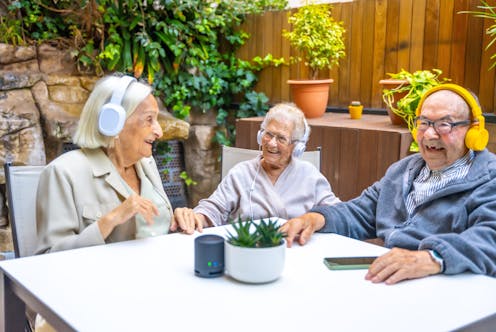Introduction
In today’s fast-paced and demanding world, it can be easy to neglect our own needs and put self-care on the back burner. However, self-care is not a luxury, but a necessity for maintaining our physical, mental, and emotional well-being. Taking care of ourselves is crucial in order to be able to effectively take care of others and meet the demands of our busy lives. In this article, we will explore the importance of self-care in a busy lifestyle and provide tips for incorporating self-care into our daily routines.
The Importance of Self-Care in a Busy Lifestyle
Neglecting self-care can have negative effects on our overall well-being. When we constantly put others’ needs before our own and fail to take time for ourselves, we can experience burnout, increased stress levels, and a decline in our physical and mental health. Neglecting self-care can also lead to decreased productivity, poor decision-making, and strained relationships.
On the other hand, prioritizing self-care can have numerous benefits. It can improve our physical health by reducing the risk of chronic illnesses and boosting our immune system. Self-care can also improve our mental and emotional well-being by reducing stress, increasing self-esteem, and promoting a positive mindset. When we take care of ourselves, we are better equipped to handle the challenges and demands of our busy lives.
Understanding the Benefits of Prioritizing Yourself
Prioritizing self-care is not selfish, but rather a necessary act of self-preservation. When we prioritize ourselves, we are better able to show up for others and fulfill our responsibilities. Taking care of ourselves allows us to recharge and replenish our energy, which in turn improves our productivity and performance in all areas of our lives.
In addition, prioritizing self-care can have a positive impact on our relationships. When we are well-rested, emotionally balanced, and fulfilled, we are able to show up as our best selves in our interactions with others. This can lead to stronger and more meaningful connections with our loved ones, as well as improved communication and conflict resolution skills.
Identifying Your Personal Self-Care Needs
In order to effectively practice self-care, it is important to identify our personal self-care needs. This involves taking the time to reflect on what activities, practices, and experiences bring us joy, relaxation, and fulfillment. What makes us feel nourished and rejuvenated? What activities help us to unwind and reduce stress? By identifying our personal self-care needs, we can create a self-care plan that is tailored to our individual preferences and needs.
One way to identify our personal self-care needs is to pay attention to how we feel after engaging in different activities. Notice which activities leave you feeling energized, fulfilled, and at peace, and which activities leave you feeling drained or stressed. Another way to identify your personal self-care needs is to ask yourself what activities you used to enjoy but have neglected due to your busy lifestyle. By reconnecting with these activities, you can rediscover what brings you joy and fulfillment.
Creating a Self-Care Plan that Works for You
Once you have identified your personal self-care needs, it is important to create a self-care plan that works for you. This involves setting aside dedicated time for self-care activities and making them a priority in your schedule. It can be helpful to create a weekly or monthly self-care calendar, where you block off specific time slots for self-care activities.
When creating your self-care plan, it is important to be realistic and flexible. Recognize that self-care is not a one-size-fits-all approach, and what works for one person may not work for another. Experiment with different activities and practices to find what resonates with you and brings you the most joy and relaxation. Remember that self-care is not just about pampering yourself, but also about nourishing your mind, body, and soul.
Tips for Making Time for Self-Care in a Busy Schedule
One of the biggest challenges in practicing self-care is finding the time to do so in a busy schedule. However, with some planning and prioritization, it is possible to make time for self-care. Here are some tips for making time for self-care in a busy schedule:
1. Set boundaries: Learn to say no to activities and commitments that do not align with your self-care priorities. It is okay to prioritize yourself and your well-being.
2. Schedule self-care time: Block off dedicated time in your schedule for self-care activities. Treat this time as non-negotiable and make it a priority.
3. Break it down: If you are struggling to find large chunks of time for self-care, break it down into smaller increments. Even just 10 minutes of self-care can make a difference.
4. Multitask: Look for opportunities to incorporate self-care into your daily routine. For example, you can listen to a podcast or audiobook while commuting, or practice deep breathing exercises while waiting in line.
How to Incorporate Self-Care into Your Daily Routine
Incorporating self-care into your daily routine is essential for maintaining a consistent self-care practice. Here are some tips for doing so:
1. Start small: Begin by incorporating small self-care activities into your daily routine. This could be as simple as taking a few minutes each morning to practice deep breathing or journaling.
2. Make it a habit: Consistency is key when it comes to self-care. Make self-care a daily habit by setting a specific time each day for self-care activities.
3. Be mindful: Practice mindfulness during your self-care activities by fully immersing yourself in the present moment. Pay attention to your senses and savor the experience.
4. Be flexible: Life can be unpredictable, and there may be days when your self-care routine gets disrupted. Be flexible and adapt your self-care activities to fit your current circumstances.
The Role of Mindfulness in Self-Care
Mindfulness plays a crucial role in self-care. By practicing mindfulness, we can cultivate a greater sense of self-awareness and presence, which in turn enhances our self-care practice. Mindfulness involves paying attention to the present moment without judgment, and can be practiced through various activities such as meditation, deep breathing, and body scans.
When we practice mindfulness during our self-care activities, we are able to fully immerse ourselves in the experience and derive greater enjoyment and relaxation from it. Mindfulness also helps us to tune into our body’s needs and signals, allowing us to better identify and respond to our self-care needs.
Self-Care Activities for Relaxation and Stress Reduction
There are countless self-care activities that can promote relaxation and reduce stress. Here are some examples:
1. Meditation: Set aside a few minutes each day to practice meditation. Find a quiet and comfortable space, close your eyes, and focus on your breath or a specific mantra.
2. Yoga: Engage in a yoga practice to stretch your body, improve flexibility, and promote relaxation. There are many online resources and apps available for guided yoga sessions.
3. Nature walks: Spend time in nature by going for a walk or hike. Being in nature has been shown to reduce stress and improve overall well-being.
4. Reading: Set aside time each day to read a book or magazine that you enjoy. Reading can be a great way to relax and escape from the demands of daily life.
The Power of Saying No: Setting Boundaries for Self-Care
Setting boundaries is an important aspect of self-care. It involves recognizing and honoring your own needs and limits, and being able to say no to activities and commitments that do not align with your self-care priorities. Setting boundaries allows you to protect your time, energy, and well-being.
Saying no can be challenging, especially if you are used to putting others’ needs before your own. However, it is important to remember that saying no is not selfish, but rather an act of self-preservation. By setting boundaries and saying no when necessary, you are prioritizing your own well-being and ensuring that you have the time and energy to take care of yourself.
Maintaining Consistency in Your Self-Care Practice
Maintaining consistency in your self-care practice is crucial for reaping the benefits of self-care. Here are some tips for maintaining consistency:
1. Set reminders: Use reminders on your phone or calendar to prompt you to engage in your self-care activities. Treat these reminders as non-negotiable and make them a priority.
2. Find an accountability partner: Find a friend or family member who can hold you accountable to your self-care goals. Share your self-care plan with them and check in regularly to ensure that you are staying on track.
3. Be flexible: Life can be unpredictable, and there may be days when your self-care routine gets disrupted. Be flexible and adapt your self-care activities to fit your current circumstances.
4. Celebrate your progress: Celebrate your achievements and progress in your self-care practice. Recognize the positive impact that self-care is having on your overall well-being and acknowledge the effort that you are putting into taking care of yourself.
Conclusion
In conclusion, self-care is not a luxury, but a necessity for maintaining our physical, mental, and emotional well-being. In a busy lifestyle, it can be easy to neglect our own needs and put self-care on the back burner. However, by prioritizing self-care and making it a non-negotiable part of our daily routine, we can improve our overall well-being, productivity, and relationships. It is important to identify our personal self-care needs, create a self-care plan that works for us, and make time for self-care in our busy schedules. By practicing mindfulness, engaging in self-care activities for relaxation and stress reduction, and setting boundaries, we can maintain a consistent self-care practice and reap the benefits of self-care in our daily lives.
Find out how Torongo Therapyplus can help you with your needs. Get in touch with us at smile@torongo.life, or call us on 02 8809 9965.































